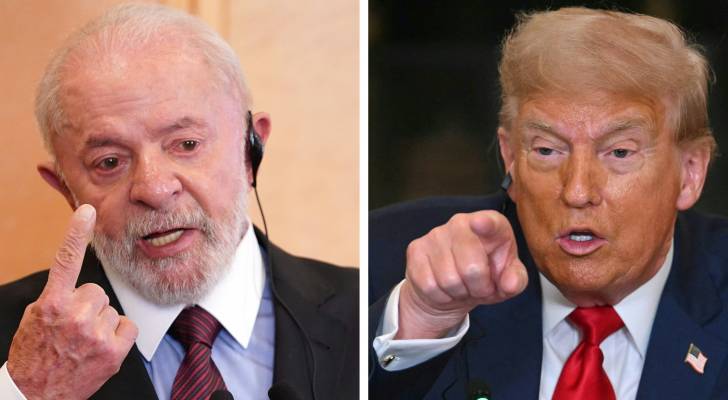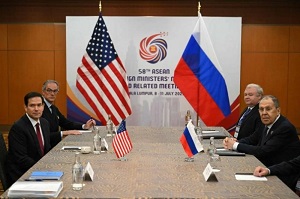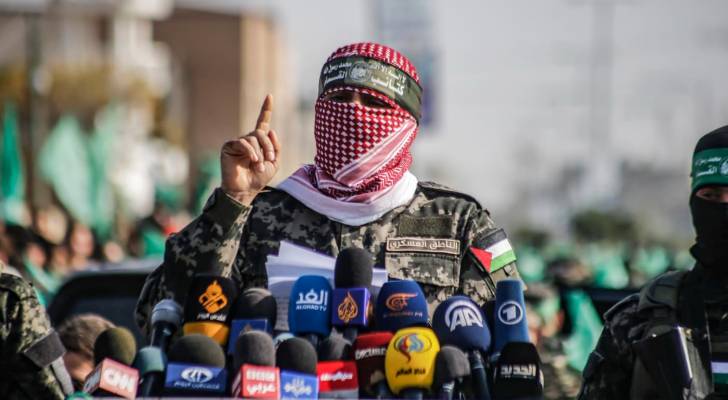‘The Shiite Duo’ and ‘Covid-26’ - By Mustafa Fahs, Asharq Al-Awsat
The world is changing, the region is changing, and Lebanon is changing, but Nabih Berri refuses to change. He seems allergic to change, or even to the term itself. The 2019 Lebanese uprising against the corrupt ruling clique generated momentum for major political, social, cultural, and economic change.
Despite the many failures of the movement for change, it remains difficult for those fortified by the post-civil war system, the sectarian warlords, to tolerate. They now see a threat to their partisan and sectarian communities’ immunity to change, and they thus decided to make change impossible.
The likelihood of this contagion spreading to the Shiite community is real- an existential emergency for our Speaker of Parliament and the leader of the Amal Movement, Mr. Nabih Berri, and his partner in the “Shiite Duo” that dominates the Shiite sect, Hezbollah. As the elder brother of this duo, Berri is in charge of every battle the duo fights to defend its privileges and gains. Under the pretext of protecting the interests of its sect, the duo has reduced Shiite representation to figures and policies that resemble themselves but not the community.
They systematically hollowed the community out from within and consolidated their monopoly over its representation, pushing capable individuals and figures out, and turning it into a clientelist sect whose politics revolve around loyalty and allegiance. Since 1992, Berri has boasted to the community of his services to blackmail the South and the Bekaa, though most of them were funded by the state and Arab donors, not from his pockets.
To shield the community from the change “epidemic,” which the Shiite electorate could catch at higher numbers than others in the 2026 parliamentary elections, Speaker Berri refuses to bring an amendment of the electoral law to a vote. The duo’s reaction and agitation to the proposed change on how expatriates vote suggest that Lebanon and the Lebanese are facing a new pandemic. We can figuratively call it the threat of “Covid-26” that comes from abroad- that is, from the diaspora and its electoral choices, which could strip the duo of its representational monopoly.
The Shiite Duo and its remaining allies refuse to grant expatriates the right to vote in their home district; this is political and character assassination, both nationally and within the Shiite community. On the national level, it will trigger a political and legislative crisis, especially since a majority of 68 MPs insist on passing the law. Within the Shiite community, however, the crisis is different- the wounds run deep in the Shiite collective memory and have major implications for its future. The diaspora, whose bank deposits the duo failed to protect, whose livelihoods in the South it failed to safeguard, and who lost their life savings due to financial engineering and a war economy, are now being denied the right to vote despite the duo’s inability to compensate them in any way.
Shiite expatriates have played a major role in elevating and supporting their political representatives in the past, with some paying a heavy price for their ethical, cultural, and ideological stances. After having endured disasters at the hands of the “Shiite Duo,” they now have the right to freedom of choice. Their votes cannot be suppressed under pretexts serving the narrow interests of the current Shiite political elite, which has always been repressive and domineering at home and now seeks to extend that control abroad. These elites justify their refusal to allow expatriate voting by claiming that the diaspora should not be allowed to engage in electoral battles abroad. These same elites have consistently justified the Shiite Duo’s actions against dissenters, including their demonization and isolation.
It is becoming increasingly clear that the “Shiite Duo” is losing its grip: no more financial surplus, no more military edge, and no more political dominance over the state. This fragility threatens its hold over the sect. The duo, at least for the near future, cannot suppress the rising opposition from within nor the organized opposition abroad. Rigging and other electoral breaches could be used in response, and its representatives will try to frame their political and sectarian anger as an existential threat, linking the survival of the sect to their own. They demand that the poor within the community protect them.
These elites, who enriched themselves through fraud, have probably not reflected on Mahmoud Darwish’s question: “Would a hungry guard defend a house whose owner has traveled to spend his summer vacation in the French or Italian Riviera? There’s no difference.” The difference, perhaps, will be made at the ballot box.




